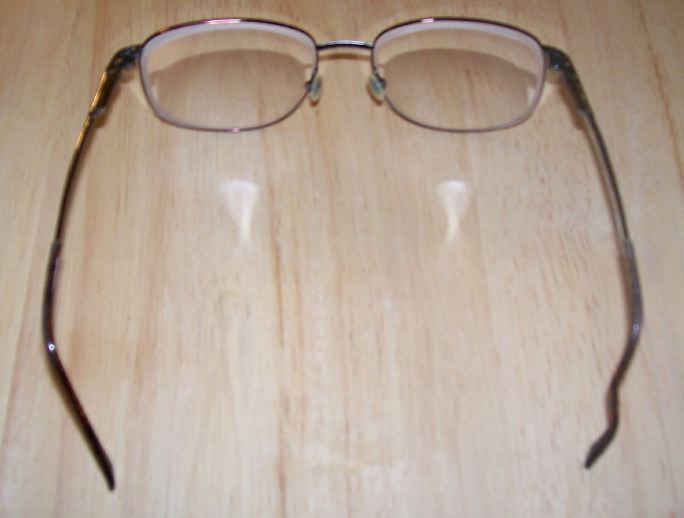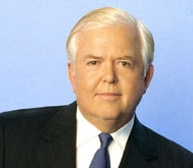| |
|
 pticiansForThePeople.com pticiansForThePeople.com
News
 Views
Views

Latest 'News'

Latest
'Views'


Mad
As Hell
Egyptian
Speaks
Prescribed
Drugs
Lasik
Eye Surgery
Wall
Street Banks
Greenspan
Speaks
The
Second Economy
Get
Money Out of Politics
High
Fructose Corn Syrup
CooperVision
Avaira Contacts Recalled
"It
remains true today, in the ancient tradition of ignorance,
that people of faith and otherwise good sense hasten to
ostracize and demonize any person or group whose
beliefs and customs are unlike their own." Hari
Singh
Americans
get an 'F' in religion
By
Cathy Lynn Grossman
"We
are not all on the same one path to the same one God ...
Religions aren't all saying the same thing. That's presumptuous
and wrong. They start with different problems, solve the
problems in different ways, and they have different goals."

"If
you think Sunni and Shia are the same because they're
both Muslim, and you've been told Islam is about peace,
you won't understand what's happening in Iraq."
March
8 - Sometimes dumb sounds cute: Sixty percent of Americans can't name
five of the Ten Commandments, and 50% of high school seniors think Sodom
and Gomorrah were married. (In the latest Pew Poll, Christians come
in dead last in their knowledge of other world
religions. Atheists and agnostics come in first.)
Stephen Prothero, chairman of the religion department at Boston University,
isn't laughing. Americans' deep ignorance of world religions - their
own, their neighbors' or the combatants in Iraq, Darfur or Kashmir -
is dangerous, he says.
His new book, Religious Literacy: What Every American Needs to Know
- and Doesn't, argues that everyone needs to grasp Bible basics, as
well as the core beliefs, stories, symbols and heroes of other faiths.
Belief is not his business, says Prothero, who grew up Episcopalian
and now says he's a spiritually "confused Christian." He says
his argument is for empowered citizenship.
"More and more of our national and international questions are
religiously inflected," he says, citing President Bush's speeches
laden with biblical references and the furor when the first Muslim member
of Congress chose to be sworn in with his right hand on Thomas Jefferson's
Quran.
"If you think Sunni and Shia are the same because they're both
Muslim, and you've been told Islam is about peace, you won't understand
what's happening in Iraq. If you get into an argument about gay rights
or capital punishment and someone claims to quote the Bible or the Quran,
do you know it's so?
"If you want to be involved, you need to know what they're saying.
We're doomed if we don't understand what motivates the beliefs and behaviors
of the rest of the world. We can't outsource this to demagogues, pundits
and preachers with a political agenda."
Scholars and theologians who agree with him say Americans' woeful level
of religious illiteracy damages more than democracy. See
the complete article here. --
George
Carlin, irreverently, on religion.

America's
Generations Gap
June
4 - In an article appearing in the Orlando Sentinel, Harry Wessel reports
that there's a generation gap in America's workplace that's serious
enough to cause a big brain drain in coming years. According to Randstad
USA, an Atlanta-based employment-services company;
"U.S.
businesses risk a shortage of skilled labor -- not because of the lack
of manpower in the wake of retiring baby boomers, but because of the
limited transfer of knowledge.
According
to a Harris Interactive survey, there is little interaction among the
four generations of U.S. employees.
It
defined the four generations as Matures* (those born before 1946), Baby
Boomers (born 1946-1964), Generation X (born 1965-1979) and Generation
Y (born 1980-1988).
The
different generations rarely interact with one another and often do
not recognize each other's skills or work ethic.
Employers
should help close the knowledge gap by instituting ways for each generation
to recognize the strengths and value of all colleagues."
See
Opticians' Generation Gap.

Some
Possible Cancer Answers
By
Hari Singh Bird
"Low
oxygen levels in cells could be a fundamental cause of cancer."
Excerpts
From 'Cancer Answers'*
"There
are several reasons cells become poorly oxygenated. An overload of toxins
clogging up the cells, poor quality cell walls that don't allow nutrients
into the cells, the lack of nutrients needed for respiration, poor circulation
and perhaps even low levels of oxygen in the air we breathe.
Cancer cells produce excess lactic acid as they ferment energy.
Lactic acid is toxic, and tends to prevent the transport of oxygen
into neighboring normal cells. Over time as these cells replicate, the
cancer may spread if not destroyed by the immune system.
Chemotherapy and radiation are used because cancer cells are weaker
than normal cells and therefore may die first.
However, chemo and radiation damage respiratory enzymes in healthy cells,
and overload them with toxins, so they become more likely to develop
into cancer. The underlying cancer causing conditions are worsened,
not improved. And the cancer usually returns quickly a second time unless
you make changes to support the health of your body." --
Some
Personal Observations
"In
each and every environment, good health and sustained
wellness is dependant on the rapid removal
of waste."
a)
In my experience as a teacher of Kundalini Yoga, I have observed many
people, young and old, with poor breathing habits. The practice of Kundalini
Yoga** (inclusive of the Breath
of Fire, Deep Breathing, Stretching, Internal Massage, etc.), and
other aerobic exercising, can provide additional and much needed oxygen
to oxygen starved cells, especially the brain.
Notes
from a Kundalini Yoga class: "No matter how good the diet is, we
tend to exceed the self cleaning capacity of our bodies. Uric acid (a
byproduct of meat consumption),
calcium crystals, and many other wastes and poisons get stored in tissues
and joints. They make us stiff and may cause many diseases. In Kundalini
Yoga, muscle stretching and internal massage bring waste back into
circulation so that the lungs, intestines, kidneys, and skin are able
to remove it."
b) Cow's milk contains lots of lactic
acid.***
For
some interesting and thought provoking words about Kundalini Yoga and
our consumption of milk,
water, and flesh
food, see these links.
*CancerPrevention.net
**KundaliniYogaByYogiBhajan.com
***MilkSucks.com
WaterCure.com
IDoNotEatDeadAnimals.com
--

Whatever
Happened To Old Fashioned
Hands-on Optical Dispensing?
By
Hari Singh Bird, Optician
OpticiansForChange.com
The
Generation Gap
See The Generational
Divides
  
Patients
deserve custom-fitted prescription
eyewear.
Hands-on,
in place, on-the-face dispensing,
is it fast becoming a thing of the past?
"For
the truly skilled Optician, the standard of care must include
personalized design and hands-on fitting of prescription eyewear."
It
is apparent to many of today's senior Ophthalmic
Patients and other industry observers that there's little connection
between the applied dispensing skills, i.e., the 'hands-on'
assessment, design, adjustment and delivery techniques of "Mature
Generation" skilled Opticians of yesteryears, and the practices
of many of today's Retail Dispensers and Managers.
Through
no fault of their own, due to the absence of multi-generational connections,
many of today's Dispensers, especially Retail
Managers, are seen to provide and-or oversee only the most casual
delivery of prescription
eyewear as if it were ready-to-wear clothing or over-the-counter
general merchandise, with little or no attention being given to the
all-important Full Discovery and Disclosure Patient Interview, or to
the subtler frame-fitting details as practiced by their hands-on-skilled
predecessors. Unfortunately, their
attention is now preoccupied almost entirely with quantity-over-quality
issues, such as daily sales goals, sales reports and other marketing
efforts to the detriment of Patient satisfaction, which of course, adversely
impacts sales as well as referrals. Consequently, many of today's Ophthalmic
Retailers are chronically struggling with high rates of returns and
refunds.
"The
most perfect ophthalmic Rx can be compromised if the
eyewear does not provide comfort and long-term wear-ability."
And
if any hands-on skill is applied,
it may amount to no more than a slight adjustment of the frame's nosepiece
and-or a sharp and short ninety-degree bend of the frame's temples at
the junction of the ears. In other words, no reshaping of the temples
to follow the lines of the skull occurs, in the mistaken belief that
it is the temples-to-ears contact that holds the eyewear in place. Of
course, it's the temples-to-skull contact, NOT THE EARS, that actually
holds the eyewear in place. See example
here.
In
fact, many of today's Dispensers only require the delivered eyewear
to look straight or "cool," never mind that it does not fit
the asymmetric facial or cranial contours of the Patient. It's as if
they are fitting a one-dimensional, flat-surfaced counter top instead
of a multi-dimensional, contoured human face and skull. Some have been
known to go so far as to 'fix', i.e., remove, any previously applied
skull-conforming configuration, albeit more comfortable for the Patient.
"In
order to excel as a Dispensing Optician, one must first have
the attitude of a Healer,
and then, the sense of a retail merchant."
Through
no fault of their own, today's Dispensers are unaware of the decades-old
decline of applied hands-on, in-place, on-the-face fitting skills. This
situation has produced at least two generations, "Generation X"
and "Generation Y" Opticians, including many latter generation
Board Certified Opticians, who have never witnessed any demonstrations
of these hands-on skills. Furthermore,
it's uncertain if any of today's Schools of Opticianry are teaching
dispensing skills to this same degree. And as a result, many latter
day Dispensers have come to believe, after practicing a couple of years
of their method of 'delivering' eyewear, that they are sufficiently
skilled and are in need of no additional training in the art and craft
of dispensing eyewear, and worse, that they have little to learn from
more skilled colleagues.
As
an example, a Patient recently reported their experience whereby they
were just handed their new eyeglasses at an Optometrist's office by
a Dispenser with 20 years of experience, whereupon no adjustments to
the eyewear were offered and the Patient was forced to seek the appropriate
service elsewhere. The Patient subsequently reported that she felt fortunate
to find an Optician having the skills to relieve her discomfort after
some considerable time spent searching. Unfortunately, similar episodes
have become rather common throughout the retail optical industry.
"Hands-on-the-patient
dispensing is a soon-to-be lost art. If the trend to the narrower
and strictly retail approach to ophthalmic services continues, a) The
marketing of ready-to-wear, over-the-counter and Web-source eyewear
will continue to flourish; b) Hands-on-the-patient dispensing skills
and services will disappear; c) Patients will continue to suffer from
substandard quality of service; and d) Prescription eyewear will continue
to be delivered by an ever increasing number of unskilled dispensers.
The fact is that the majority of today's eyewear dispensing professionals
require major upgrading in their skills without which they will become
increasingly irrelevant in the eyecare industry." -- OpticianryToday.com
Placing
The Frame Directly On The Patient Is A Crucial Step

"By
placing the eyewear directly on the Patient, the Optician
can get a much better sense of how the frame fits the Patient,
whether too tight or loose, and what adjustments are needed."
Some
portion of the Opticians' Generation Gap is explicable due to the current
focus on Dispenser training by way of on-the-job apprenticeship programs,
many of which are devoid of adequate Full Discovery Patient Interview
training, and absent any Hands-on, In-place, On-the-face assessment,
design and adjustment of prescription eyewear as practiced by skilled
Opticians. But this gap is equally a result of today's over-emphasis
on the corporate retail paradigm whereby the latter generations especially
tend to become more skilled at parroting slogans, giving testimonials
about sales prowess, and answering questions about company policy, sales
goals and promotions from company executives, all of which afford them
no experience in conducting a Patient interview or effectively assessing,
designing, and then fitting prescription eyewear directly on the Patient.
Unfortunately today's aspiring Dispensers tend to become merchants,
peddling ready-made, over-the-counter merchandise, not skilled Opticians,
dispensing customized, prescription eyewear.
"It's
time for Optical Retailers to think outside the 'Big Box.'
Unlike other retail venues, the delivery of ophthalmic services, i.e.,
adjustments and repairs at no charge, often precedes a future sale."
This
leads one to wonder whether board certification and-or licensing is
really effective, since just about anybody can hand over a pair of eyeglasses
or contact lenses and operate a cash register, as we see demonstrated
in some of today's true-to-life TV ads, whereby the Patient and Dispenser
never make direct contact. The Dispenser just hands the Patient their
eyewear. The Patient puts the eyeglasses on, looks in the mirror, and
leaves. This scenario is so commonplace today in the real world that
many Patients never expect to have any form-fitting adjustments applied
to a frame.

"A
Surgeon must train for years in actual hands-on practice,
in residency, before being considered to be a qualified Surgeon."
In
the eyes of the Consumer the hands-on
custom fitting aspect of dispensing eyewear has become an exotic
and unfamiliar craft, and the art has devolved to such an extent that
many Consumers (even many Dispensers) now actually think that a hand-fitted
frame is inferior to an off-the-board frame. For example, some Patients,
having never seen or experienced a hands-on customized
frame fitting, have been known to request that the skull conforming
adjustments, having been applied by a skilled Optician of the hands-on-school,
be removed from temple ends because "they don't look straight,
flat and normal like other people's glasses." Unfortunately, the
"other people's glasses" were more than likely never customized
to fit either.
There
are some industry observers who see the devolution of Ophthalmic Dispensing
as the result of an overall corporate strategy perpetrated by some industry
members to eliminate any reliance on competent, licensed Dispensers
in order to better manage their labor costs and enhance their profits.
But the Profession is mostly the victim of the perpetual tension and
struggle between opposing market forces; the Company's need for control
of inventory and labor costs, and the Patient's desire for choice and
comfort. What many corporations don't understand is that giving the
Consumer more of what they want is best for everybody. The last century's
most successful entrepreneur, Sam Walton, taught that the Company must
always favor the Consumer, first. See
complete article here. --
See
Optician: Merchant or Health Care Provider?

A
Call To The Faithful

By
Lou Dobbs
CNN Commentator
"This
week the head of the Los Angeles Archdiocese, Cardinal Roger
Mahony, basically threatened his faithful with denial of heaven if
they don't support amnesty for illegal aliens."
NEW
YORK (CNN) - The separation of church and state in this country is narrowing.
And it is the church, not the state that is encroaching. Our Constitution
protects religion from the intrusion or coercion of the state. But we
have precious little protection against the political adventurism of
all manner of churches and religious organizations.
The leadership of the Catholic Church and many Protestant churches,
as well as Jewish and even Muslim religious organizations, are driving
that political adventurism as those leaders conflate religion and politics.
And while there is a narrowing of the separation between church and
state, there is a widening schism between the leadership of churches
and religious organizations and their followers and members.
Conservative evangelical leader James Dobson recently said actor and
former Sen. Fred Thompson wasn't Christian enough to be president. He
instead chose to commend Newt Gingrich, who has been married three times
and recently admitted to an extramarital affair. Five evangelical Christian
leaders signed the "Land Letter" to President Bush in 2002
affirming a Christian theological basis to invade Iraq.
This week the head of the Los Angeles Archdiocese, Cardinal Roger Mahoney,
basically threatened his faithful with denial of heaven if they don't
support amnesty for illegal aliens. The good Cardinal said: "Anything
that tears down one group of people or one person, anything that is
a negative in our community, disqualifies us from being part of the
eternal city."
The nation's religious leaders seem hell-bent on ignoring the separation
of church and state when it comes to the politically charged issue of
illegal immigration. A new coalition called Christians for Comprehensive
Immigration Reform Wednesday will begin lobbying lawmakers with a new
advertising and direct mail campaign on behalf of amnesty for illegal
aliens.
The Rev. Jim Wallis of Sojourners Magazine put it this way: "If
given the choice on this issue between Jesus and Lou Dobbs, I choose
my Lord and savior, Jesus Christ."
But before the faithful acquiesce in the false choice offered by the
good Reverend, perhaps he and his followers should consult Romans 13,
where it is written: "Everyone must submit himself to the governing
authorities, for there is no authority except that which God has established.
The authorities that exist have been established by God. Consequently,
he who rebels against the authority is rebelling against what God has
instituted, and those who do so will bring judgment on themselves."
There is a more obvious and immediate judgment offered by the followers
and members of both the Protestant and Catholic Churches. A Zogby poll
last year asked churchgoers if they supported the House bill that would
make illegal aliens return home and reduce future illegal immigration
by securing the border and performing checks on illegal employers. Seventy-five
percent of Protestants responded that was a good or very good idea,
77 percent of born-again Christians also agreed, and 66 percent of Catholics
also backed tougher enforcement measures.
This schism between our church leaders and church members is just as
broad and deep as that between our elected officials and their constituents
across the country. Neither the state nor the church is exhibiting wisdom
or fidelity to our national values in permitting the widening of that
divide.
The opinions expressed in this commentary are solely those of the writer.
--

Trash
Talk Radio

By
Gwen Ifill
Op-Ed Contributor
New York Times Opinion
"This
country will only flourish once we consistently learn to applaud
and encourage the young people who have to work harder just to
achieve balance on the unequal playing field."
Washington
DC - LET’S say a word about the girls. The young women with the
musical names. Kia and Epiphanny and Matee and Essence. Katie and Dee
Dee and Rashidat and Myia and Brittany and Heather.
The Scarlet Knights of Rutgers University had an improbable season,
dropping four of their first seven games, yet ending up in the N.C.A.A.
women’s basketball championship game. None of them were seniors.
Five were freshmen.
In the end, they were stopped only by Tennessee’s Lady Vols, who
clinched their seventh national championship by ending Rutgers’
Cinderella run last week, 59-46. That’s the kind of story we love,
right? A bunch of teenagers from Newark, Cincinnati, Brooklyn and, yes,
Ogden, Utah, defying expectations. It’s what explodes so many
March Madness office pools.
But not, apparently, for the girls. For all their grit, hard work and
courage, the Rutgers girls got branded “nappy-headed ho’s”
— a shockingly concise sexual and racial insult, tossed out in
a volley of male camaraderie by a group of amused, middle-aged white
men. The “joke” — as delivered and later recanted
— by the radio and television personality Don Imus failed one
big test: it was not funny.
The serial apologies of Mr. Imus, who was suspended yesterday* by both
NBC News and CBS Radio for his remarks, have failed another test. The
sincerity seems forced and suspect because he’s done some version
of this several times before.
I know, because he apparently did it to me.
I was covering the White House for this newspaper in 1993, when Mr.
Imus’s producer began calling to invite me on his radio program.
I didn’t return his calls. I had my hands plenty full covering
Bill Clinton.
Soon enough, the phone calls stopped. Then quizzical colleagues began
asking me why Don Imus seemed to have a problem with me. I had no idea
what they were talking about because I never listened to the program.
It was not until five years later, when Mr. Imus and I were both working
under the NBC News umbrella — his show was being simulcast on
MSNBC; I was a Capitol Hill correspondent for the network — that
I discovered why people were asking those questions. It took Lars-Erik
Nelson, a columnist for The New York Daily News, to finally explain
what no one else had wanted to repeat.
“Isn’t The Times wonderful,” Mr. Nelson quoted Mr.
Imus as saying on the radio. “It lets the cleaning lady cover
the White House.”
I was taken aback but not outraged. I’d certainly been called
worse and indeed jumped at the chance to use the old insult to explain
to my NBC bosses why I did not want to appear on the Imus show.
I haven’t talked about this much. I’m a big girl. I have
a platform. I have a voice. I’ve been working in journalism long
enough that there is little danger that a radio D.J.’s juvenile
slap will define or scar me. Yesterday, he began telling people he never
actually called me a cleaning lady. Whatever. This is not about me.
It is about the Rutgers Scarlet Knights. That game had to be the biggest
moment of their lives, and the outcome the biggest disappointment. They
are not old enough, or established enough, to have built up the sort
of carapace many women I know — black women in particular —
develop to guard themselves against casual insult.
Why do my journalistic colleagues appear on Mr. Imus’s program?
That’s for them to defend, and others to argue about. I certainly
don’t know any black journalists who will. To his credit, Mr.
Imus told the Rev. Al Sharpton yesterday he realizes that, this time,
he went way too far.
Yes, he did. Every time a young black girl shyly approaches me for an
autograph or writes or calls or stops me on the street to ask how she
can become a journalist, I feel an enormous responsibility. It’s
more than simply being a role model. I know I have to be a voice for
them as well.
So here’s what this voice has to say for people who cannot grasp
the notion of picking on people their own size: This country will only
flourish once we consistently learn to applaud and encourage the young
people who have to work harder just to achieve balance on the unequal
playing field.
Let’s see if we can manage to build them up and reward them, rather
than opting for the cheapest, easiest, most despicable shots.
Gwen Ifill is a senior correspondent for “The NewsHour With Jim
Lehrer” and the moderator of “Washington Week." --
*Note: Don Imus was fired from his positions with NBC News and CBS just
hours after his suspensions from both networks.

Invisibility
Cloak May Be Possible
By
Andrew Bridges

Imagine an invisibility
cloak that works just like
the one Harry Potter inherited from his father.
An
invisibility cloak and other Harry Potteresque types of magic are likely
doable, researchers say. "What's standing in the way is our engineering
capabilities," said John Pendry, a physicist at the Imperial College
London.
Researchers in England and the United States think they know how to
do that. They are laying out the blueprint and calling for help in developing
the exotic materials needed to build a cloak.
The keys are special manmade materials, unlike any in nature or the
Hogwarts School of Witchcraft and Wizardry. These materials are intended
to steer light and other forms of electromagnetic radiation around an
object, rendering it as invisible as something tucked into a hole in
space.
"Is it science fiction? Well, it's theory and that already is not
science fiction. It's theoretically possible to do all these Harry Potter
things, but what's standing in the way is our engineering capabilities,"
said John Pendry, a physicist at the Imperial College London.
Details of the study, which Pendry co-wrote, appear in Thursday's online
edition of the journal Science.
Scientists not involved in the work said it presents a solid case for
making invisibility an attainable goal.
"This is very interesting science and a very interesting idea and
it is supported on a great mathematical and physical basis," said
Nader Engheta, a professor of electrical and systems engineering at
the University of Pennsylvania. Engheta has done his own work on invisibility
using novel materials called metamaterials.
Pendry and his co-authors also propose using metamaterials because they
can be tuned to bend electromagnetic radiation - radio waves and visible
light, for example - in any direction.
A cloak made of those materials, with a structure designed down to the
submicroscopic scale, would neither reflect light nor cast a shadow.
Instead, like a river streaming around a smooth boulder, light and all
other forms of electromagnetic radiation would strike the cloak and
simply flow around it, continuing on as if it never bumped up against
an obstacle. That would give an onlooker the apparent ability to peer
right through the cloak, with everything tucked inside concealed from
view.
"Yes, you could actually make someone invisible as long as someone
wears a cloak made of this material," said Patanjali Parimi, a
Northeastern University physicist and design engineer at Chelton Microwave
Corp. in Bolton, Mass. Parimi was not involved in the research.
Such a cloak does not exist, but early versions that could mask microwaves
and other forms of electromagnetic radiation could be as close as 18
months away, Pendry said. He said the study was "an invitation
to come and play with these new ideas."
"We will have a cloak after not too long," he said.
The Pentagon's Defense Advanced Research Projects Agency supported the
research, given the obvious military applications of such stealthy technology.
While Harry Potter could wear his cloak to skulk around Hogwarts, a
real-world version probably would not be something just to be thrown
on, Pendry said.
"To be realistic, it's going to be fairly thick. Cloak is a misnomer.
'Shield' might be more appropriate," he said. --

THE
CRUCIFIXION
by An Eyewitness

This
extraordinary account claims Jesus was crucified, removed from the cross
... alive, and then fully recovered with the help of the Essenes.
The
Dead Sea Scrolls were uncovered in 1947. What do the Dead Sea Scrolls
reveal about Jesus and why haven't these works been published, in full,
after 60 years of 'research'? Is it possible that they reveal data that
corroborates Jesus' survival, as claimed in 'The
Crucifixion,' by An Eyewitness? Is this the non-fiction sequel to
'The DaVinci Code'? Is this The Greatest Story Never Told? Click here,
now!

Your
Birth Date Numerology

We have
your number!
Your
Birth Number can indicate who you are, what you are good at, and what
your inborn abilities are. It can also point to what you have to learn,
and the challenges that you face. A Birth Number does not present you
with any obstacles to being anything you want to be, but it may just
color your choices differently and give you better insight as to choices
that you make.
To
figure out your Birth Number, add all the numbers in your Birth Date
together, as in this example, until there is only one digit.
Example: March 20, 1950
3 + 20 + 1950 = 1973
Continue until you end up with a single digit number.
1 + 9 + 7 + 3 = 20
2 + 0 = 2
2 then, is the Birth Number to read for the Birth Date in this example.
Find your number below and check yourself out.
 1
= THE ORIGINATOR 1
= THE ORIGINATOR
 2
= THE PEACEMAKER 2
= THE PEACEMAKER
 3
= THE LIFE OF THE PARTY 3
= THE LIFE OF THE PARTY
 4
= THE CONSERVATIVE 4
= THE CONSERVATIVE
 5
= THE NONCONFORMIST 5
= THE NONCONFORMIST
 6
= THE ROMANTIC 6
= THE ROMANTIC
 7
= THE INTELLECTUAL 7
= THE INTELLECTUAL
 8
= THE BIG SHOT 8
= THE BIG SHOT
 9
= THE PERFORMER 9
= THE PERFORMER

THE
ORIGINATOR
1's
are originals. Coming up with new ideas and executing them is natural.
Having things their own way is another trait that gets them as being
stubborn and arrogant. 1's are extremely honest and do well to learn
some diplomacy skills. They like to take the initiative and are often
leaders or bosses, as they like to be the best. Being self-employed
is definitely helpful for them.
Lesson to learn: Others' ideas might be just as good or better and to
stay open minded.
Famous 1's: Tom Hanks, Robert Redford, Hulk Hogan, Carol Burnett, Wynona
Judd, Nancy Reagan, Raquel Welch.

THE
PEACEMAKER
2's
are the born diplomats. They are aware of others' needs and moods and
often think of others before themselves. Naturally analytical and very
intuitive they don't like to be alone. Friendship and companionship
is very important and can lead them to be successful in life, but on
the other hand they'd rather be alone than in an uncomfortable relationship.
Lesson to learn: Being naturally shy, 2's should learn to boost their
self-esteem and express themselves freely and seize the moment and not
put things off.
Famous 2's: President Bill Clinton, Madonna, Whoopee Goldberg, Thomas
Edison, Wolfgang Amadeus Mozart.

THE
LIFE OF THE PARTY
3's
are idealists. They are very creative, social, charming, romantic and
easygoing. They start many things, but don't always see them through.
They like others to be happy and go to great lengths to achieve it.
They are very popular and idealistic.
Lesson to learn: 3's should learn to see the world from a more realistic
point of view.
Famous 3's: Alan Alder, Ann Landers, Bill Cosby, Melanie Griffith, Karen
Roundbutt, Salvador Dali, Jodi Foster.

THE
CONSERVATIVE
4's
are sensible and traditional. They like order and routine. They only
act when they fully understand what they are expected to do. They like
getting their hands dirty and working hard. They are attracted to the
outdoors and feel an affinity with nature. They are prepared to wait
and can be stubborn and persistent.
Lesson to learn: 4's should learn to be more flexible and to be nice
to themselves.
Famous 4's: Neil Diamond, Margaret Thatcher, Arnold Schwarzenegger,
Tina Turner, Paul Hogan, Oprah Winfrey.

THE
NONCONFORMIST
5's
are the explorers. Their natural curiosity, risk taking and enthusiasm
often land them in hot water. They need diversity, and don't like to
be stuck in a rut. The whole world is their school and they see a learning
possibility in every situation. The questions never stop.
Lesson to learn: 5's are well advised to look before they take action
and make sure they have all the facts before jumping to conclusions.
Famous 5's: Abraham Lincoln, Charlotte Bronte, Jessica Walter, Vincent
Van Gogh, Bette Midler, Helen Keller and Mark Hail.

THE
ROMANTIC
6's
are idealistic and need to feel useful to be happy. A strong family
connection is important to them. Their actions influence their decisions.
They have a strong urge to take care of others and to help. They are
very loyal and make great teachers. They like art or music. They make
loyal friends who take the friendship seriously.
Lesson to learn: 6's should learn to differentiate between what they
can change and what they cannot.
Famous 6's: Albert Einstein, Jane Seymour, John Denver, Meryl Streep,
Christopher Columbus, Goldie Hawn.

THE
INTELLECTUAL
7
's are the searchers. Always probing for hidden information, they find
it difficult to accept things at face value. Emotions don't sway their
decisions. Questioning everything in life, they don't like to be questioned
themselves. They're never off to a fast start, and their motto is slow
and steady wins the race. They come across as philosophers and being
very knowledgeable, and sometimes as loners. They are technically inclined
and make great researchers uncovering information. They like secrets.
Lesson to learn: 7's live in their own world and should learn what is
acceptable and what is not in the world at large.
Famous 7's: William Shakespeare, Lucille Ball, Michael Jackson, Joan
Baez, Princess Diana.

THE
BIG SHOT
8's
are the problem solvers. They are professional, blunt and to the point,
have good judgment and are decisive. They have grand plans and like
to live the good life. They take charge of people. They view people
objectively. They let you know in no uncertain terms that they are the
boss.
Lesson to learn: 8's should learn to exude their decisions on their
own needs rather than on what others want.
Famous 8's: Edgar Cayce, Barbara Streisand, George Harrison, Jane Fonda,
Pablo Picasso, Aretha Franklin, Nostrodamus.

THE
PERFORMER
9's
are natural entertainers. They are very caring and generous, giving
away their last dollar to help. With their charm, they have no problem
making friends and nobody is a stranger to them. They have so many different
personalities that people around them have a hard time understanding
them. They are like chameleons, ever changing and blending in. They
have tremendous luck, but also can suffer from extremes in fortune and
mood.
Lesson to learn: To be successful, 9's need to build a loving foundation.
Famous 9's: Albert Schweitzer, Shirley MacLaine, Harrison Ford, Jimmy
Carter, Elvis Presley. --
Astrology
For You 

The
Cutting Edge
Which Cut Is Older? (It's a Trick Question)
By Marian Burros
If some of the meat in supermarkets is looking rosier than it used
to, the reason is that a growing number of markets are selling it
in airtight packages treated with a touch of carbon monoxide to
help the product stay red for weeks.

Both of these steaks were red when bought on
Feb. 3.
Kept refrigerated, they were then photographed on Feb. 16.
Why the difference? The one at top was treated with
a process that has some consumer groups angered.
This form of "modified atmosphere packaging," a technique
in which other gases replace oxygen, has become more widely used
as supermarkets eliminate their butchers and buy precut, "case-ready"
meat from processing plants.
The reason for its popularity in the industry is clear. One study,
conducted at Oklahoma State University for the Cattlemen's Beef
Board in 2003, said retailers lost at least $1 billion a year as
meat turned brown from exposure to oxygen, because, though it might
still be fairly fresh and perfectly safe, consumers simply judged
meat's freshness by its color.
The
carbon monoxide is itself harmless at the levels being used in the
treated packaging. But opponents say that the process, which is
also used to keep tuna rosy, allows stores to sell meat that is
no longer fresh, and that consumers would not know until they opened
the package at home and smelled it. Labels do not note whether meat
has been laced with carbon monoxide.
The Food and Drug Administration approved use of the process in
2004. The Washington Post reported in its Monday editions that Kalsec,
a Michigan producer of a natural food extract that helps slow the
discoloring of the meat but does not "fix" it in the same
way as carbon monoxide, had petitioned the agency to reverse that
decision.
The Consumer Federation of America and the advocacy group Safe Tables
Our Priority have written a letter to the agency in support of the
petition because, they say, the bright red color could mask spoilage
and dangerous bacteria in older meat or meat that has not been kept
at the proper temperature.
Supermarket chains including A.&P. and Pathmark do not carry
the treated meat, but it is showing up with increasing frequency
elsewhere. In New York City, it is sold at 30 Gristede's stores,
at D'Agostino markets under the labels Laura's Lean Beef and Creekstone's,
and at the Morton Williams stores in the Associated chain. A spokeswoman
for Safeway did not respond to phone calls and e-mail messages about
sale of the treated meat there, but it was available at a Safeway
market in Bethesda, Md., earlier this month. SuperTarget stores
are also selling it, and Wal-Mart reports carrying it in 150 stores.
"This is what is going to happen in the meat business,"
said John A. Catsimatidis, chairman and chief executive of Gristede's.
"The meat looks great. It looks as red as the day it was cut."
Processors say treated ground meat can be sold for 28 days after
leaving the plant, and solid cuts for 35 days. The agribusiness
company Cargill says it has sold 100 million packages in the last
year.
Randy Huffman of the American Meat Institute Foundation, an industry
group, said, "The primary benefit in providing this product
to consumers is the red color they have grown to expect."
In a firsthand look at the treated meat, a package of a conventionally
wrapped rib steak and one with the carbon monoxide were both red
when bought on Feb. 3 near Washington. They were then kept refrigerated.
By Feb. 16, when they were photographed for the pictures that appear
with this article, the conventional meat was brown, but the treated
meat was still rosy. And as of yesterday, other treated meat bought
at the same time was still red despite having been left unrefrigerated
on a kitchen counter since Feb. 14.
Some food scientists who approve of other forms of modified atmosphere
packaging as a way of extending a product's life say this form of
it can be unsafe. Michael Doyle, director of the Center for Food
Safety at the University of Georgia, says one study found that when
meat in modified packages that included carbon monoxide was stored
at 10 degrees above the proper temperature, salmonella grew more
easily.
Representative John D. Dingell of Michigan, the ranking Democrat
on the House Energy and Commerce Committee, has asked the F.D.A.
to explain its approval of the process.
"It's just common sense that when consumers buy meat, they
use color as an important indicator of its freshness," Mr.
Dingell said in an e-mail message to a reporter. "For F.D.A.
to rely on a promise of some stamp on the package that says 'use
or freeze by' is just naïve."


Physicians
Committee for Responsible Medicine

BECOME
A VEGETARIAN
Help stamp out SARS and Bird Flu
Think
about it!
Most food-borne human illnesses
are related to the eating of flesh foods.
Case
Against Eating Meat The
SARS Connection
SCHOLARS
RATE WORST PRESIDENTIAL BLUNDERS
By Elizabeth Dunbar
From engaging
in sexual relations with an intern to letting the Vietnam War escalate,
U.S. presidents have been blamed for some egregious errors. So who
had the worst blunder?
 President James Buchanan, for failing to avert the Civil War, according
to a survey of presidential historians organized by the University
of Louisville's McConnell Center.
President James Buchanan, for failing to avert the Civil War, according
to a survey of presidential historians organized by the University
of Louisville's McConnell Center.
The survey's top 10 presidential blunders were announced Saturday
during a President's Day weekend conference called "Presidential
Moments."
"We can probably learn just as much - or maybe even more - by
looking at the mistakes rather than looking at why they were great,"
said political scientist and McConnell Center Director Gary Gregg.
Scholars who participated said Buchanan didn't do enough to oppose
efforts by Southern states to secede from the Union before the Civil
War.
 The second
worst mistake, the survey found, was Andrew Johnson's decision just
after the Civil War to side with Southern whites and oppose improvements
in justice for Southern blacks beyond abolishing slavery. The second
worst mistake, the survey found, was Andrew Johnson's decision just
after the Civil War to side with Southern whites and oppose improvements
in justice for Southern blacks beyond abolishing slavery.
"We continue to pay" for Johnson's errors, wrote Michael
Les Benedict, an Ohio State University history professor emeritus.
 Lyndon Johnson
earned the No. 3 spot by allowing the Vietnam War to intensify, Gregg
said. Lyndon Johnson
earned the No. 3 spot by allowing the Vietnam War to intensify, Gregg
said.
The rest of the top 10 blunders:
 Woodrow Wilson's
refusal to compromise on the Treaty of Versailles after World War
I. Woodrow Wilson's
refusal to compromise on the Treaty of Versailles after World War
I.
 Richard Nixon's
involvement in the Watergate cover-up. Richard Nixon's
involvement in the Watergate cover-up.
 James Madison's
failure to keep the United States out of the War of 1812 with Britain. James Madison's
failure to keep the United States out of the War of 1812 with Britain.
 Thomas Jefferson's
Embargo Act of 1807, a self-imposed prohibition on trade with Europe
during the Napoleonic Wars. Thomas Jefferson's
Embargo Act of 1807, a self-imposed prohibition on trade with Europe
during the Napoleonic Wars.
 John F. Kennedy
allowing the Bay of Pigs invasion that led to the Cuban Missile Crisis. John F. Kennedy
allowing the Bay of Pigs invasion that led to the Cuban Missile Crisis.
 Ronald Reagan
and the Iran-Contra Affair, the effort to sell arms to Iran and use
the money to finance an armed anti-communist group in Nicaragua. Ronald Reagan
and the Iran-Contra Affair, the effort to sell arms to Iran and use
the money to finance an armed anti-communist group in Nicaragua.
Where
does Bill Clinton's Monica Lewinsky scandal rank?
 Many scholars said it belonged at No. 10, saying that it probably
affected Clinton's presidency more than it did American history and
the public. --
Many scholars said it belonged at No. 10, saying that it probably
affected Clinton's presidency more than it did American history and
the public. --

  


What's this?


You
are IT
Golden
Milk
Health
Links
Back
Walking
Sweet
Poison
Inner
Clean Diet
For
Women Only
What
About Eyes
Test
Your News IQ
The
Heart Attack Grill
Meditation
For Women
What
About Chemtrails
What
About Aspartame
Drinking...Driving...Dead
All
About Kundalini Yoga
Detoxification
Meditation
What
About Ear Candling
Good
Guys Wear Turbans
I Do Not Eat Dead Animals
What
About Sodium Benzoate
What
Your Optician Needs To Know
Corporations
Are Killing Consumers
Another
Side of The Soy-Protein Story
What
About PPA (PhenylPropanolAmine)
American
Crisis: The Military-Industrial Complex

More Web sites by
KhalsaWebMasters.com
 OpticiansForThePeople.com
© All rights reserved.
|
|
|